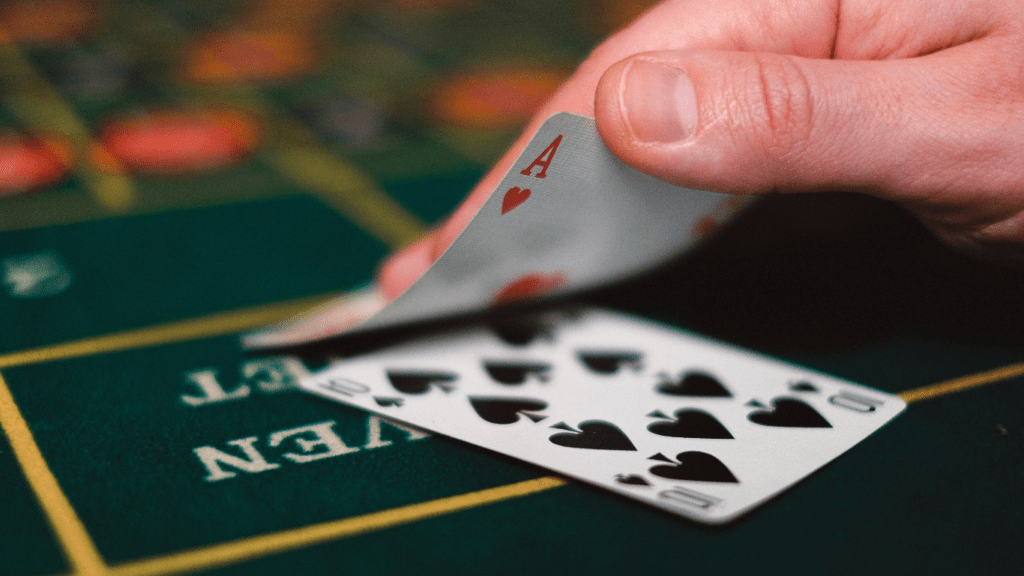In the high-stakes world of poker, the debate between luck and skill is a perennial one. As a seasoned player who has navigated the ups and downs of the game, I understand the delicate balance between chance and strategy that can ultimately determine long-term success at the tables.
While luck may play a significant role in individual hands, it’s the mastery of skill that sets apart the consistent winners from the one-hit wonders in the realm of professional poker. Through my own experiences and observations, I’ve come to appreciate the nuanced interplay between calculated risks and fortuitous outcomes that define a player’s journey towards sustained excellence in this competitive arena.
Join me as I delve deeper into the intricate dynamics of luck versus skill in the context of long-term poker success, shedding light on the strategies and mindsets that can tip the scales in favor of those aiming to achieve lasting triumph in the game.
Understanding Luck and Skill in Poker
Reflecting on my years of playing poker, it’s clear that understanding the interplay between luck and skill is paramount for long-term success in the game. While luck can sway individual hands or even sessions, skill is the enduring factor that separates consistent winners from occasional victors.
In poker, luck manifests in the short term, leading to outcomes that may seem random or unpredictable. However, over the long run, skill emerges as the dominant force, shaping a player’s overall results. Skilled players consistently outperform their less-experienced counterparts by making strategic decisions, reading opponents, and managing their bankrolls effectively.
The balance between luck and skill in poker is delicate yet defining. While luck can influence the outcome of a single hand, skill influences the outcome of a session, a tournament, or even a player’s entire career. Recognizing this balance is crucial for players seeking to achieve sustained excellence in the game.
As a player who has navigated the highs and lows of poker, I’ve come to appreciate the intricate dance between luck and skill. It’s not just about being in the right place at the right time; it’s about honing your craft, sharpening your strategic acumen, and mastering the mental aspects of the game. Embracing both luck and skill is key to thriving in the challenging yet rewarding world of poker.
Factors Influencing Short-Term Poker Outcomes
The Impact of Luck on Short-Term Results
In the short term, luck can play a significant role in determining poker outcomes. While skill is crucial for long-term success, luck can sway individual hands or even entire sessions. It’s important to remember that in the short run, variance can lead to unexpected results, regardless of skill level.
Luck can affect the short-term outcomes of a poker game, causing even skilled players to experience fluctuations in their results.
The Influence of Skill on Short-Term Performance
- Skill vs. Luck: While luck affects outcomes, skill is essential for short-term poker success, enabling players to make strategic decisions amid uncertainties.
-
Strategic Advantage: Skilled players excel at reading opponents, managing their bankroll, and seizing opportunities, allowing them to make informed choices and maintain consistent performance despite luck’s fluctuations.
Long-Term Success in Poker
Balancing Luck and Skill for Sustainable Results
In the realm of poker, achieving long-term success hinges on striking a delicate balance between luck and skill. While luck can sway individual outcomes, it is skill that acts as the cornerstone of sustained excellence in this strategic game of uncertainties.
Skilled players, adept at making calculated decisions, deciphering opponent strategies, and managing their bankrolls effectively, consistently outshine their less-experienced counterparts.
Harnessing Skill to Mitigate the Impact of Luck
Mastering the art of poker involves leveraging skill to mitigate the influence of luck on short-term outcomes. Despite the unpredictable nature of luck in the game, honing one’s skills empowers players to make informed choices, anticipate opponent moves, and capitalize on favorable situations.
By sharpening their skills and embracing a strategic mindset, players can navigate the ebbs and flows of luck, ensuring a more stable performance over time.
Strategies for Enhancing Poker Success
Reflecting on my experiences as a seasoned player, I’ve identified key strategies that can enhance poker success by effectively leveraging both luck and skill.
1. Continuous Skill Development
Constantly honing your poker skills through practice, study, and active learning is crucial for long-term success. By staying updated on strategies, analyzing gameplay, and seeking feedback from peers, you can refine your skills and adapt to different playing styles.
2. Bankroll Management
Maintaining a disciplined approach to bankroll management is essential. Setting specific limits, avoiding high-stakes games during downswings, and allocating funds wisely can help you sustain your poker career through fluctuations in luck and variance.
3. Psychological Resilience
Cultivating mental toughness and emotional control is vital in facing the uncertainties of poker. Developing resilience to bad beats, maintaining focus during losing streaks, and avoiding tilt are key aspects of preserving your gameplay quality and decision-making under pressure.
4. Reading Opponents
Being adept at reading your opponents’ behaviors, bet patterns, and tendencies is a valuable skill in poker. By accurately assessing their strategies, you can make informed decisions, exploit weaknesses, and adjust your gameplay to maximize your edge at the table.
5. Adaptability
Remaining flexible and adaptable to changing game dynamics, table conditions, and opponents’ strategies is essential for success. Being able to adjust your playstyle, switch tactics, and capitalize on profitable situations ensures that you stay ahead in the ever-evolving landscape of poker.
6. Consistent Practice
Consistency in practice is key to improving your game. Regularly participating in games, tournaments, or simulations helps reinforce your skills, sharpen your decision-making abilities, and maintain a competitive edge over time.
By incorporating these strategies into your poker approach, you can optimize your chances of long-term success by effectively navigating the interplay between luck and skill in this dynamic and challenging game.



 Eriker Welschesters
Cryptocurrency Gambling Advisor & Blockchain Expert
Eriker Welschesters is Pro Gamble Genius's resident cryptocurrency gambling expert, offering a forward-thinking perspective on the integration of blockchain technology with online gambling. Eriker has spent years studying the intersections of finance, technology, and gambling, and his insights have made him a leading authority in the world of cryptocurrency betting. His work focuses on educating readers about the benefits, risks, and practical applications of digital currency in online casinos, including topics like secure transaction methods, anonymity, and the role of blockchain in fair gaming practices. Eriker’s articles help both crypto-savvy readers and newcomers to safely navigate the fast-growing world of cryptocurrency gambling. Dedicated to ensuring that Pro Gamble Genius remains at the forefront of this trend, Eriker continuously explores new developments in blockchain and crypto to keep readers informed and prepared to make the most of their gambling experiences in a digital age.
Eriker Welschesters
Cryptocurrency Gambling Advisor & Blockchain Expert
Eriker Welschesters is Pro Gamble Genius's resident cryptocurrency gambling expert, offering a forward-thinking perspective on the integration of blockchain technology with online gambling. Eriker has spent years studying the intersections of finance, technology, and gambling, and his insights have made him a leading authority in the world of cryptocurrency betting. His work focuses on educating readers about the benefits, risks, and practical applications of digital currency in online casinos, including topics like secure transaction methods, anonymity, and the role of blockchain in fair gaming practices. Eriker’s articles help both crypto-savvy readers and newcomers to safely navigate the fast-growing world of cryptocurrency gambling. Dedicated to ensuring that Pro Gamble Genius remains at the forefront of this trend, Eriker continuously explores new developments in blockchain and crypto to keep readers informed and prepared to make the most of their gambling experiences in a digital age.
